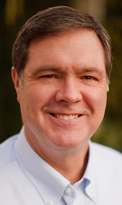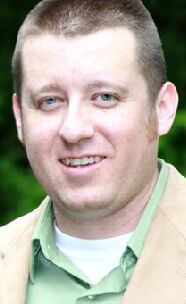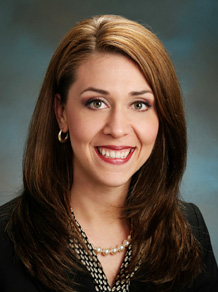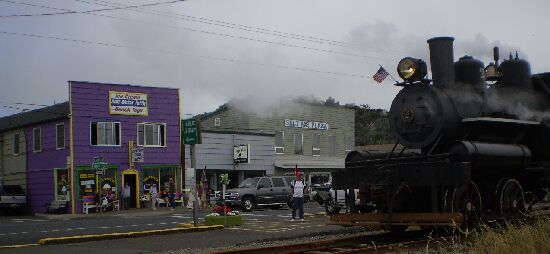
Denny Heck |

David Castillo |

David Hedrick |

Jaime Herrera |
Tuesday's election day in Washington will be one of the first real Northwest indicators of how November's elections will play out. One of the best places to examine for clues may be the Washington 3rd district: An open House seat - incumbent Democrat Brian Baird is retiring - in a district closely split between the parties, and strongly competed for by both parties.
A quick reminder: This is not a normal primary election, where party nominees are chosen, but rather a "top two," where the two best vote-getters proceed on to November. They could even come from the same party, though in the case is of the 3rd, the odds are strong the finalists will be one Democrat and one Republican.
Not a lot here by way of outright predictions, but some thoughts on what to watch for.
This much is pretty easy: One of the candidates to clear the top-two bar almost certainly will be Denny Heck. Heck is not the only Democrat on the ballot - Cheryl Crist, who has run for the office before without accumulating many votes - is running, and to his left, which will likely mean some peel-off. How large that is may be an indicator of just how well Heck, who has run as a Democratic centrist, has been able to bring his party's base on board.
One other point to watch: What is the combined Democratic percentage, compared to the combined Republican percentage? That may be a useful indicator for November. To be noted: Heck has a hefty financial advantage, according to the most recent reports, $707,840 cash on hand, which is more than six times as much as anyone else.
The biggest interest, though, is on the Republican side, where the results seem less clear than on the Democratic, and where the race is much harder fought.
The weight of opinion has given an informal frontrunner status to Jaime Herrera of Ridgefield.
There's a case for this. She has connections, worked for U.S. Representative Cathy McMorris-Rodgers, who has backed her campaign and attracted additional help. On her own, Herrera is a state representative, first appointed and then easily elected in 2008. She is articulate, photogenic (not a knock - it's an asset) and energetic - a solid candidate on her own merits; the external help is just a plus. She has amassed what are probably more substantial batches of endorsements than her Republican rivals. She also has raised more money ($410,627) than any of the other Republicans, and has more on hand ($113,838). She's been spending, and is alone in running spots on cable TV.
Still, the cautionary notes abound: Don't write this race off yet. David Castillo of East Olympia has raised competitive amounts of money ($257,815) and spent the bulk of it; David Hedrick of Camas has raised and spent far less, but has had a highly energetic campaign and gotten attention.
Castillo especially merits some attention. Like Herrera, he has gotten backing from a cadre of well-placed Republicans including Attorney General Rob McKenna and state House Republican leader Richard DeBolt of Chehalis - a key figure in Republican politics in the district, and personally representing a district that's a part of the Republican core.
Another indicator of sorts: Castillo has done very well with newspaper endorsements, winning those of the Seattle Times, the Vancouver Columbian, the Longview Daily News and the Centralia Chronicle. (The Columbian was the only one to endorse two Republicans - Herrera was the other - for the top two.) Point here is not that endorsements make winners, but that - like campaign contributions - they often do reflect a candidate's viability.
If all of that sounds like an argument for tossing the third Republican, Hedrick, off the train, well, not quite. And that is partly a reflection of this particular year.
Hedrick's web site calls him a "constitutional conservative Republican" ("patriot" and "Christian" show up a lot too), and this is a dog whistle you can hear. All three Republican candidates call themselves conservative, and fit the description by any usual standards, but Hedrick's message sounds distinctly different, much more Tea Partyish - and his appeal is aimed squarely in that direction. He seems to have aligned himself loosely, for example, with Senate candidate Clint Didier, who has lots of Tea Party support; but while the Senate race has two TP candidates and one establishment Republican (Dino Rossi), the 3rd district Republican scene has two more establishment Republicans (Herrera and Castillo) and one partier - Hedrick. And Hedrick doesn't mind some boat-rocking. In a radio forum last week on Oregon Public Broadcasting, Hedrick came out flatly for privatizing Social Security, which left Heck in definitive opposition and the other two Republicans scrambling.
Consider this from Matthew Trent, a blogger, a council member at Centralia and himself a Tea Party backer: "I was already a supporter of local tea party icon David Hedrick. So I am biased, but I'm going to say he dominated the 3rd district speeches to the assembly Saturday. Fellow candidates Herrera and Castillo lacked Hedrick's fire and substance. It felt like they were telling us what we wanted to hear, while Hedrick spoke with conviction about the liberty he loves. The delegates (almost 1200 of them this year) responded much more vigorously to Hedrick than his competitors."
So how large is the Tea Party impact in this week's election? We may find out, and more clearly here than in the Senate race. Watch for this on Tuesday.







